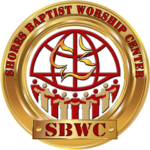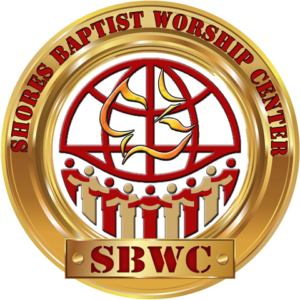
Join us ONLINE for
Small Groups Bible Study
Shores Baptist Worship Center, Ocala, FL
BEGINNING AUGUST 2022, BIBLE STUDY WILL BE HELD IN SMALL GROUPS ON TUESDAY AT 11AM & 6PM
* INVITE YOUR FRIENDS – SHARE ON SOCIAL MEDIA*
2022 BIBLE STUDY TEACHING SCHEDULE
Click the Topic to go directly to video
JANUARY
TEACHER: Evangelist Arletia Mayfield
TOPIC: The Faith to be Healed
SCRIPTURE: John 14:12 NKJVMost assuredly, I say to you, he who believes in Me, the works that I do he will do also; and greater works than these he will do, because I go to My Father.
Week 1 (1-5-22) Healing is a Promise
Week 2 (1-12-22) Activating your faith for Healing
Week 3 (1-19-22) Healing Blockers
Week 4 (1-26-22) The Just Shall live by Faith
FEBRUARY
 TEACHER: Evangelist Franklin Mayfield
TEACHER: Evangelist Franklin Mayfield
TOPIC: The Just Shall Live by Faith
Hebrews 10:38-39 NKJV
Now the just shall live by faith;
But if anyone draws back,
My soul has no pleasure in him.”
Week 1 (2-2-22) The Just shall live by Faith
Week 2 (2-9-22) Trusting and Obeying by Faith
Week 3 (2-16-22) Various Points of our Faith Walk
Week 4 (2-23-22) Overcome and Die by Faith
MARCH
 TEACHER: Sister Alice Reid
TEACHER: Sister Alice Reid
TOPIC: Faith
In the same way, faith by itself, if it is not accompanied by action, is dead. James 2:17
Week 1 (3-2-22) Faith, what is it?
Week 2 (3-9-22 ) Is it hard to have faith in God?
Week 3 (3-16-22) The benefits of having faith in God.
Week 4 (3-23-22 ) – Growing your faith.
APRIL
 TEACHER: Evangelist Arletia Mayfield
TEACHER: Evangelist Arletia Mayfield
TOPIC: The Father of our Faith – Abraham
As for me, behold, my covenant is with thee, and thou shalt be a father of many nations. Genesis 17:4
Week 1 (4-6-22) Answering the Call by faith
Week 2 (4-13-22) Receiving the Covenant by faith
Week 3 (4-20-22) Following God by Faith
Week 4 (4-27-22) Being Heirs to the Promise by faith
MAY
 TEACHER: Minister Ken Reid
TEACHER: Minister Ken Reid
Week 1 (5-4-22) The Faith of Jabez
Week 2 (5-11-22) The Faith of David
Week 3 (5-18-22) The Faith of Jairus
Week 4 (5-25-22) The Faith of Samson
JUNE
 TEACHER: Lady Melissa Garner
TEACHER: Lady Melissa Garner
THEME: Building a Strong Faith that Endures
Week 1 (6-1-22) – Living By Faith
Week 2: (6-8-22) – Enoch, A man who Walked with God
Week 3 (6-15-22) – Noah, A Man who worked for God
Week 4 (6.22.22) – Abraham, A Man Who Willingly Followed God
Week 5: (6.29.22) – Rahab, A Woman Who Pleased God
JULY – MONTH OF REFRESHING – NO BIBLE STUDY


 It is so good to have this opportunity to reach out to you to tell you about our next scheduled WOW event. The title is Chat & Chew and it is scheduled for Saturday, March 26, 2022at Shores Baptist Worship Center from 10:00am – 2:00pm.
It is so good to have this opportunity to reach out to you to tell you about our next scheduled WOW event. The title is Chat & Chew and it is scheduled for Saturday, March 26, 2022at Shores Baptist Worship Center from 10:00am – 2:00pm.


 FEBRUARY 2022
FEBRUARY 2022
 This is where you will find information about how to connect and fellowship with SBWC online and in-person.
This is where you will find information about how to connect and fellowship with SBWC online and in-person. TEACHER: Lady Melissa Garner
TEACHER: Lady Melissa Garner
 Join us for Drive-In Worship Service every third Sunday of the month at Shores Baptist Worship Center, 414 Silver Road, Ocala, Florida.
Join us for Drive-In Worship Service every third Sunday of the month at Shores Baptist Worship Center, 414 Silver Road, Ocala, Florida.













